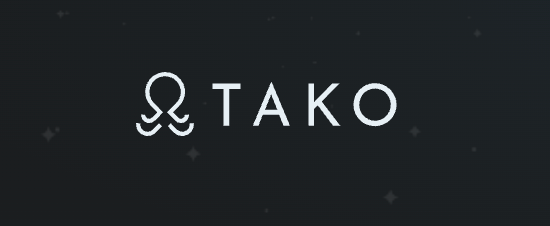The Scoop
Tako, a small startup that turns text queries into data visualizations using generative AI, has attracted some big names as investors.
The startup, which launched earlier this year, announced a $5.75 million seed round Wednesday that was led by Eventbrite co-founder Kevin Hartz and includes investor Stanley Druckenmiller, AngelList co-founder Naval Ravikant, Vercel founder Guillermo Rauch and 49ers great Joe Montana, among other prominent tech industry names.
Tako uses public and licensed data to instantly create slick-looking, interactive charts and graphs it calls “knowledge cards.”
Earlier this year, Tako partnered with AI search engine Perplexity to offer the knowledge cards as part of some queries that centered around data.
Perplexity co-founder Aravind Srinivas, who also participated in Tako’s seed round, hailed the partnership as a way to pack more information into the answer engine’s responses. “An answer engine should be able to answer basic facts about anything: but also not just get back to you with long summaries. High density units of information are essential,” he tweeted at the time.
In an interview with Semafor, Tako cofounder Alex Rosenberg said the goal is to create a kind of “Google Maps for knowledge,” allowing people to move through data on the internet graphically, instead of textually.
Rosenberg said the funding will allow the company to hire more people to expand partnerships, attract talent and add capabilities to the product.
Rosenberg, who spent three years at Amazon, co-founded the company with Bobby Abbott, a software engineer who came from crypto-focused venture capital firm Paradigm.
“Their drive is unmatched,” said Hartz, who invested through his venture capital firm A*, short for A star capital.
In this article:
Know More
Generative AI has upended the search engine for the first time in more than 20 years. Rather than surfacing links to websites, generative AI promises to deliver complete answers while offering links backing up its sources.
Companies like Perplexity have been on the leading edge of that shift, which has forced even Google to rethink what it means to be a search engine.
Tako is another example of how the meaning of the term “search engine” is changing. Researchers often use Google to find sources of trustworthy data, which they then enter into a spreadsheet before turning it into a chart.
Tako compresses that process into a simple text query.
The company envisions partnerships like the one with Perplexity as a revenue driver, but Rosenberg said the company is also planning to build a direct-to-consumer product line aimed at knowledge workers who use data.
It might also be useful for journalists, Rosenberg said. Most publications no longer have graphics or research desks, an area where Tako might be able to fill the void, he said.
One unique thing about Tako is that customers won’t necessarily have to know what data they are looking for. They might, Rosenberg said, upload a written report and ask Tako to think of data that might help bolster it. Tako would go out and find it, creating the appropriate charts and graphs.
The company said it plans to continue expanding its sources of data, making the product more useful.
Reed’s view
When Rosenberg compared Tako to a newspaper graphics department, it brought back memories of my time at The Wall Street Journal, when an entire team of graphics people would look at early drafts of articles and help conceive of charts and graphs to accompany it.
Most journalists don’t have anything close to that luxury these days, so I instantly grasped the value of a tool like Tako.
The big question for any AI-enabled startup like Tako is how it’s going to defend its business from copycats — aka a “moat.”
In this case, there are probably a couple of moats. One is the data itself. It takes time and effort to find and license sources of data that can be used for the charts.
The second is the honing of the text-to-chart AI model. Tako’s technology requires proprietary code for searching and visualizing data directly. Getting that right and connecting it to the natural language of AI prompts will take some time, allowing Tako to keep gaining on would-be competitors.
Room for Disagreement
Not everybody is convinced that AI search is going to be useful.
“Generative AI technology is supposed to transform the way we search the web. At least, that’s the line we’ve been fed since ChatGPT exploded on the scene near the end of 2022, and now every tech giant is pushing its own brand of AI technology,” Vox reported.


